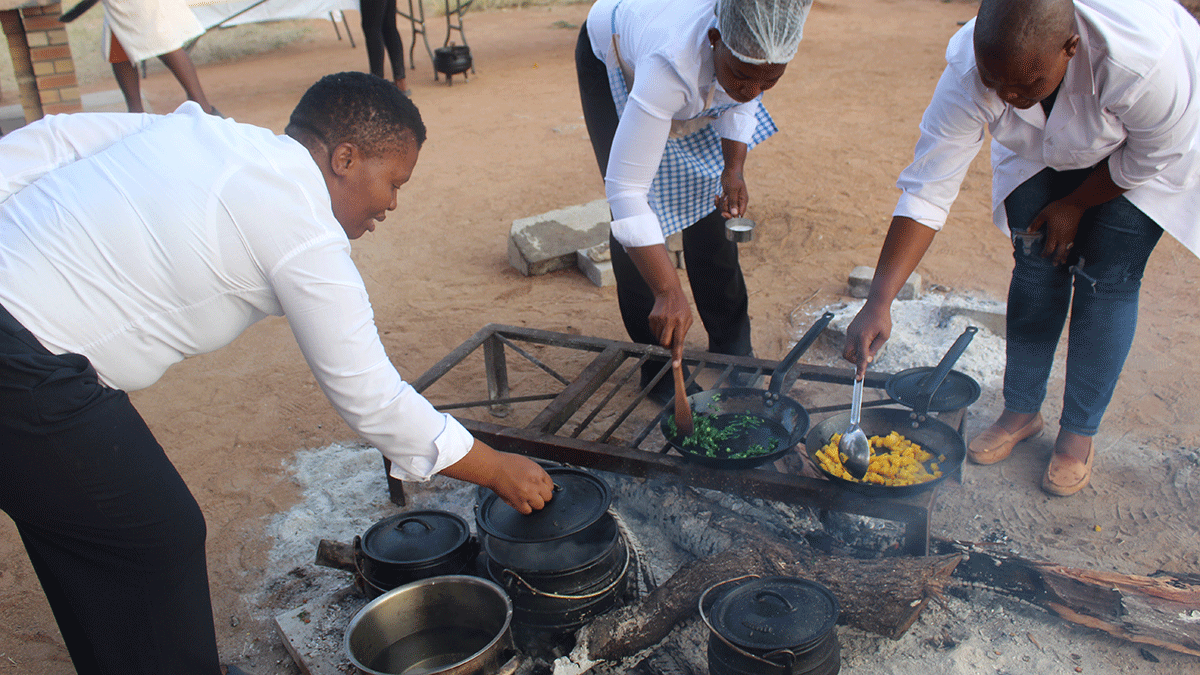BCA collaborate with FCTVE to up-skill chefs
Botswana Chefs Association (BCA) and Francistown College of Technical and Vocational Education (FCTVE) have joined hands to shine the spotlight on chefs in the country, and promote safe food-handling.
Speaking at the launch of the BCA-Francistown Chapter at the Gerald-based college on Friday, FCTVE Principal, Asalepele Tobedza said the collaboration would benefit students in a big way.
Tobedza noted the union comes at the perfect time, with government’s ban on the importation of baked goods in full force.
In August 2020, in the hope of stimulating micro, small, medium and large enterprises operating bread and confectionary services, the Ministry of Trade and Industry announced a restriction on bringing baked goods into the country.
The banned goods included all types of bread, such as pastries, cookies, muffins, scones, cupcakes and other baked products prepared from flour or meals derived from some form of grain.
“It’s time to do all these ourselves,” declared Tobedza.
His sentiments were shared by Donga Ward Councillor, Editor Mothowabarwa, who urged the college and BCA to extend their knowledge to the rest of the society.
“We’ve a lot of small scale business people selling food in the streets, and I believe collaborations like this one can be exploited. We’ve enough chefs in the country to teach about safe food-handling and personal hygiene where food is concerned,” mentioned Mothowabarwa.
The Councillor further encouraged student chefs to always respect their profession regardless of how far along the food chain they are, whether they be working in a five-star establishment or simply selling food in the street.
“Chefs have an internationally recognised attire. Foreign nationals will easily recognise a well-drilled chef, by the way they dress and carry themselves around food because the standards are the same,” he stated.
In his remarks, Head of Department in the Faculty of Hospitality and Tourism, Richard Molefhe, who initiated the collaboration, revealed their intention in the long run is to see food being handled by professionals whenever possible.
“At public gathering and events such as funerals, weddings and parties, people with at least basic training on food handling should be the ones allowed to prepare food,” said Molefhe.
A renowned chef and an executive member of the BCA, Molefhe said the collaboration with the college further aims at teaching chefs to be managers.
“When they leave the college, they should be in a position to run their own business or at least be at a managerial position,” he said.
For his part, BCA President, Thuto Masala, an Executive Chef at Grand Palm, said the association he leads plans to equip student chefs with the necessary skills to be market ready. He said in collaboration with industry players like Senn Foods, they will teach students different meat cuts and how they are prepared.
“We’re going to have real live demonstrations on how to remove beef cuts from a carcass and how to prepare these special cuts,” said Masala.
Furthermore, Masala announced BCA’s plan to change the plight of chefs in Botswana by up-skilling them and urging them to be entrepreneurs instead of employees.
“There are many restaurants and hotels, and most of them are not owned by chefs. What they do is that they hire a chef, the heartbeat of the business and then pay them peanuts,” lamented Masala.
“Many chefs work for so many years at established eateries, then retire with nothing to show for it. The BCA wants to change all that. We want our chefs to own restaurants and hotels,” he said.






